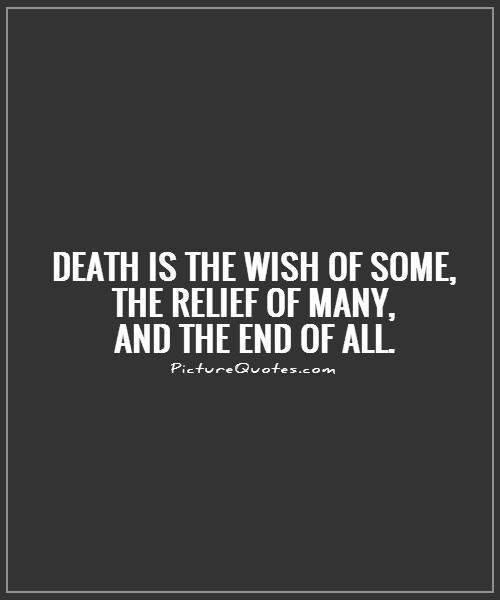Death is the wish of some, the relief of many, and the end of all

Death is the wish of some, the relief of many, and the end of all
Lucius Annaeus Seneca, a Roman philosopher and statesman, is known for his profound insights into human nature and the nature of life itself. One of his most famous quotes is, “Death is the wish of some, the relief of many, and the end of all.” This quote encapsulates the complex and often contradictory attitudes that people have towards death.For some, death is a welcome release from the suffering and hardships of life. This sentiment is echoed in the words of Seneca, who acknowledges that death can be a relief for those who are burdened by pain, illness, or other forms of suffering. In this sense, death can be seen as a form of liberation, a way to escape the trials and tribulations of existence.
On the other hand, there are those who fear death and wish to avoid it at all costs. For them, death represents the unknown, a terrifying void that threatens to swallow up everything they hold dear. This fear of death can lead to a desperate clinging to life, even in the face of unbearable suffering.
But ultimately, death is the great equalizer, the one certainty that awaits us all. No matter how much wealth, power, or fame we may accumulate in life, death comes for us all in the end. Seneca’s words remind us of the inevitability of death and the futility of trying to escape it.
In the grand scheme of things, death is the final destination, the ultimate end point of our journey through life. It is a reminder of our mortality and the impermanence of all things. And yet, in acknowledging the reality of death, we can also find a sense of peace and acceptance. By embracing the inevitability of death, we can learn to live more fully in the present moment, cherishing each day as a precious gift.












 Friendship Quotes
Friendship Quotes Love Quotes
Love Quotes Life Quotes
Life Quotes Funny Quotes
Funny Quotes Motivational Quotes
Motivational Quotes Inspirational Quotes
Inspirational Quotes